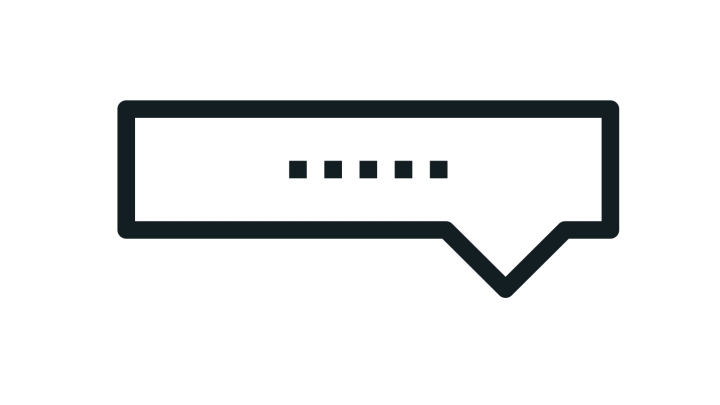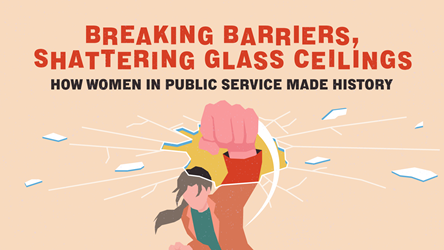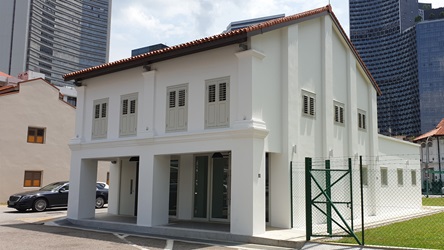Tweets And Tweaks – Creating Space For Civil Dialogue Online

Ever drafted a comment in a discussion thread only to refrain from clicking “post”, all too wary – and weary – of being flamed or trolled?
Assistant Chief Executive of the Cyber Security Agency of Singapore Gaurav Keerthi founded the online platform Dialectic precisely because of such concerns. Scroll through the discussion threads on the platform and you will find that, by and large, the comments are substantive and tempered, compared to the freewheeling fare on social media platforms like Facebook and Twitter.
On Dialectic, two community members have to assess if a comment is respectful and relevant before it gets posted. “There is a conscious decision,” Gaurav says, “to skew my website towards quality rather than quantity.
“I don’t want a lot of short comments that don’t add much value, because I want people to think and truly engage with the topic.”
Former Nominated Member of Parliament Kuik Shiao-Yin, who is also active as a dialogue facilitator, has a rule of thumb for online conversations: “Make sure you don’t mistake people looking to play psychological games with people looking for sincere conversations.”
Quoting Eric Berne’s book Games People Play, she says trolls play a range of games identified by the psychiatrist. In a game Berne calls “Ain't It Awful”, for instance, the point is to overtly express distress to wring as much satisfaction from another party’s misfortune as possible. And in “Why Don't You—Yes, But”, the point is to present a problem and dismiss all offered solutions to show that that the solution-giver is inadequate.
Breaking out of echo chambers
With a deluge of news about hate speech proliferating on social media, such as YouTube’s recommendation algorithm leading to radicalisation, it might be surprising to know that Gaurav, a self-described “respectful debate advocate”, is “optimistic that things can and will eventually change for the better”.
He thinks that artificial intelligence (AI) will make enough progress to detect hate speech and moderate its impact. In fact, Facebook’s AI engineers have been looking into a technology called self-supervised learning to increase the speed of hate speech detection.
Tech companies seem to be paying greater attention to civil discourse in recent years. Jigsaw, a Google-owned tech incubator, for instance, has invested in Change A View, a site that has been described by tech publication Wired as an “online oasis”.

On Change A View, a user submits a view he or she would like to be changed. Others then submit responses to persuade the poster. If the original poster is satisfied by a response, they award the most convincing commenter a delta symbol, representing change. Engagement is valued here, and participants are required to respond to comments within three hours.
That model of engagement started in 2013 as a Reddit conversation thread called Change My View. Since its founding in 2013 by then 17-year-old Kal Turnbull, it has grown into a community of over 750,000 subscribers.
The new site, which operates concurrently with the Reddit thread, has added features for better debate. Now, a poster can use the “shine” feature to highlight an illuminating comment, even if the comment did not succeed in changing the poster’s mind.
Turnbull has said that he hopes his site can be used in classrooms to promote better conversations. Gaurav has already made some headway here.
Unlike Change a View, Dialectic has a private debate feature (password-protected, for good measure), which he says teachers have used to teach students how to comment on contentious online topics – an educational role that he is proud the platform can play.
It has been five years since he launched the site. In that time, AI and text analytics have made significant advances. Gaurav is keen on exploring these new technologies to spur online debate that is even better than before.
Bridging online and offline conversations
While the Internet has introduced novel possibilities for discourse, old-fashioned face-to-face engagement has its own time-tested advantages.
Kuik, who co-founded the social enterprise The Thought Collective, finds that there is more room offline than online for “establishing understanding, facilitating conversation flow and moderation negotiation between stakeholders”.
Since February 2019, she and her colleagues have been running Facilitating Powerful Conversations, an initiative for public, private and community service professionals to communicate effectively and impact people around them.
Asked what she would look for in a platform for constructive online debate, she replies by bringing the online and offline worlds together. She says a “good outcome” would be steering people towards face-to-face meet-ups.
“They can work through their interpersonal or group dynamics and issues with a lot more care, sincerity, competency and reliability.”
#insights
Gaurav Keerthi, founder of Dialectic: “Our schools spend a lot of effort teaching young people how to write long essays, but that skill is becoming less relevant in the modern world. The ability to think quickly and write concisely for an email, a Facebook comment, a WhatsApp message, or a tweet – these are not taught in school, and yet these are the most important formats of interaction in the adult world.”
Kuik Shiao-Yin, The Thought Collective co-founder: “I find that for moderation to have the most impact, you have to have consensus or permission from the conversational stakeholders to play that role for them. That is really hard to get online.”
Kal Turnbull, founder of Change My View: “It seems to be in our nature to focus on how we were wrong over the fact that we’re now right (as if we can’t be works in progress), and we often attach our egos to what we believe. This is an idea we are trying to challenge at Change My View. A view is just how you see something, it doesn’t have to define you, and trying to detach from it to gain an understanding can be a very good thing.” – as reported in Wired.

Understanding trolling
What makes someone a troll, a person who posts inflammatory or disruptive comments? Here are some possible explanations:
- Online disinhibition effect: The lack of restraint a user may feel online because the user does not experience any of the negative social impacts that can arise from face-to-face encounters.
- Lack of affective empathy: This prevents a user from feeling the emotional experience of people they hurt with words or actions.
- Status-enhancement: By hurting people, a user draws attention and feels important, even gaining approval from other trolls.
- Broken window theory: Originally used to show that a visibly crime-ridden or antisocial neighbourhood encourages further criminal or antisocial behaviour, this theory has now been applied to unmoderated online forums, where trolling begets more trolling.

Designing for constructiveness
Polarisation, echo chambers and toxicity – these concerns over Internet discourse are raised aplenty in the news today.
In recent years, technologists, start-up founders and dialogue facilitators have turned their attention to creating platforms for reasoned debate. Here is a breakdown of features for encouraging constructive conversations.
dialectic.sg
Launched in 2015 by debate educator and social entrepreneur Gaurav Keerthi, Dialectic is an online platform and community aimed at promoting respectful online discussions. The patent-pending site is designed to encourage quality comments.
Nudge factors
- Users vote their agreement or disagreement with topic questions
- Comments can be liked by all users
- Senior and expert users vote on how logical and persuasive comments are
- Users are ranked by points amassed from quality comments
- Virtual persuasiveness coach provides tips and suggestions on improving comments
Troll shield
- A comment appears only after two random members support it
- The two members assess whether the comment is respectful and relevant
changeaview.com
Change a View is a 2019 outgrowth of the Reddit thread Change My View that was started by Kal Turnbull in 2013. A user can post a view on the site, inviting commenters to change his or her mind. According to the forum’s norms, a poster must genuinely believe in the view they’re publishing and be genuinely open to having their mind changed.
Nudge factors
- When a commenter changes someone’s mind, they are awarded a delta (the symbol for change)
- “Shine” feature allows a poster to acknowledge an illuminating comment, even if their mind is not entirely changed
- A poster is required to reply to a comment within three hours, to ensure substantive debate
- A comment-ranking engine gives moderators feedback
Troll shield
- Google’s Perspective API program uses machine learning models to score the perceived impact of a comment
- No private messaging, to prevent harassment of posters by hostile commenters
abridgenews.com
Founded in 2017 by Laura Carpenter, as part of the Harvard Innovation Labs incubation programme. Abridge News gives people access to different views on issues. Every day, a member of the team scans the web, selects a news topic and publishes four opinion articles from varied sources and vantage points. A Reader Reactions feature tracks readers’ agreement and disagreement with topics.
Nudge factors
- Quick Facts summary provides essential information for readers with little to no background context on topics
- Opinion Spectrum graphic encourages people to break out of their echo chambers by exposing them to views at the extreme ends and those in the middle
Troll shield
- Fixed statements for Reader Reactions prevent shouting matches
Kialo, Esperanto for “reason”, started running in 2017. Founded by Errikos Pitsos, the platform puts a premium on reasoned debate. Each claim on a topic must be unemotional, original and shorter than 500 characters. These claims are organised under different branches in an Argument Tree, which is a visual map of the debate. Some companies have expressed interest in using Kialo to make difficult decisions.
Nudge factors
- Claims for each segment of the tree are arranged according to “Pros” and “Cons” for people to see and learn from different sides of a debate
- Users can thank others for contributions and request for clarifications
- Administrators help readers revise claims that are too emotional
Troll shield
- An administrator or the creator of a debate decides if claims are approved or dismissed

The gist
Tips for having civil discourse online
- When commenting, go for quality over quantity. Avoid using abusive language (e.g., name-calling) and ad hominem attacks (making points about the opponent’s unrelated traits rather than the discussion at hand).
- Do not confuse people looking for honest conversations with those playing psychological games. If you recognise a troll, aim to disengage or block the user if necessary.
- To be open to changing your views, focus on how you have updated your views with new information, and not how you were wrong before.
- POSTED ON
Sep 3, 2019
- TEXT BY
Simon Vincent









